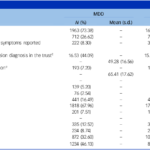2025-03-25 ウィスコンシン大学マディソン校(UW-Madison)
<関連情報>
- https://news.wisc.edu/could-an-arthritis-drug-unlock-lasting-relief-from-epilepsy-and-seizures-uw-madison-researchers-see-promising-results-in-mice/
- https://www.science.org/doi/10.1126/scitranslmed.adt0527
慢性てんかんモデルマウスにおける2週間のトファシチニブ投与による疾患の変化 Disease modification upon 2 weeks of tofacitinib treatment in a mouse model of chronic epilepsy
Olivia R. Hoffman, Jennifer L. Koehler, Jose Ezekiel Clemente Espina, Anna M. Patterson, […], and Avtar S. Roopra
Science Translational Medicine Published:19 Mar 2025
DOI:https://doi.org/10.1126/scitranslmed.adt0527

Editor’s summary
Most patients with epilepsy require lifelong medication for seizure management. Hoffman et al. identified Stat3 as a hub gene that regulates transcriptomic changes in the brains of mice after status epilepticus (SE) and in patients with temporal lobe epilepsy. In mice, JAK/STAT signaling was transiently induced during SE and reactivated in the chronic phase weeks after the induction of SE. Treatment with the FDA-approved JAK inhibitor tofacitinib during the chronic phase reduced seizure burden up to 2 months after drug washout in mice. These results highlight a potential strategy for permanent seizure suppression that warrants further studies. —Daniela Neuhofer
Abstract
All current drug treatments for epilepsy, a neurological disorder affecting more than 50 million people, merely treat symptoms, and a third of patients with epilepsy do not respond to medication. There are no disease-modifying treatments that may be administered briefly to patients to enduringly eliminate spontaneous seizures and reverse cognitive deficits. Applying network approaches to whole tissue and single-nucleus transcriptomic data collected from mouse models of temporal lobe epilepsy and publicly available transcriptomic data from human temporal lobectomy samples, we confirmed a previously described pattern of rapid and transient induction of the Janus kinase/signal transducer and activator of transcription (JAK/STAT) pathway within days of epileptogenic insult. This was followed by a resurgent activation of the JAK/STAT pathway weeks to months later with the onset of spontaneous seizures. Targeting the first wave of JAK/STAT activation after epileptic insult did not prevent seizures. However, inhibition of the second wave with CP690550 (tofacitinib) over a 2-week period enduringly suppressed seizures, rescued deficits in spatial memory, and alleviated epilepsy-associated histopathological alterations. Seizure suppression lasted for at least 2 months after the final dose. These results indicate that reignition of inflammatory JAK/STAT3 signaling in chronic epilepsy opens a window for disease modification with the US Food and Drug Administration–approved, orally available drug CP690550.


